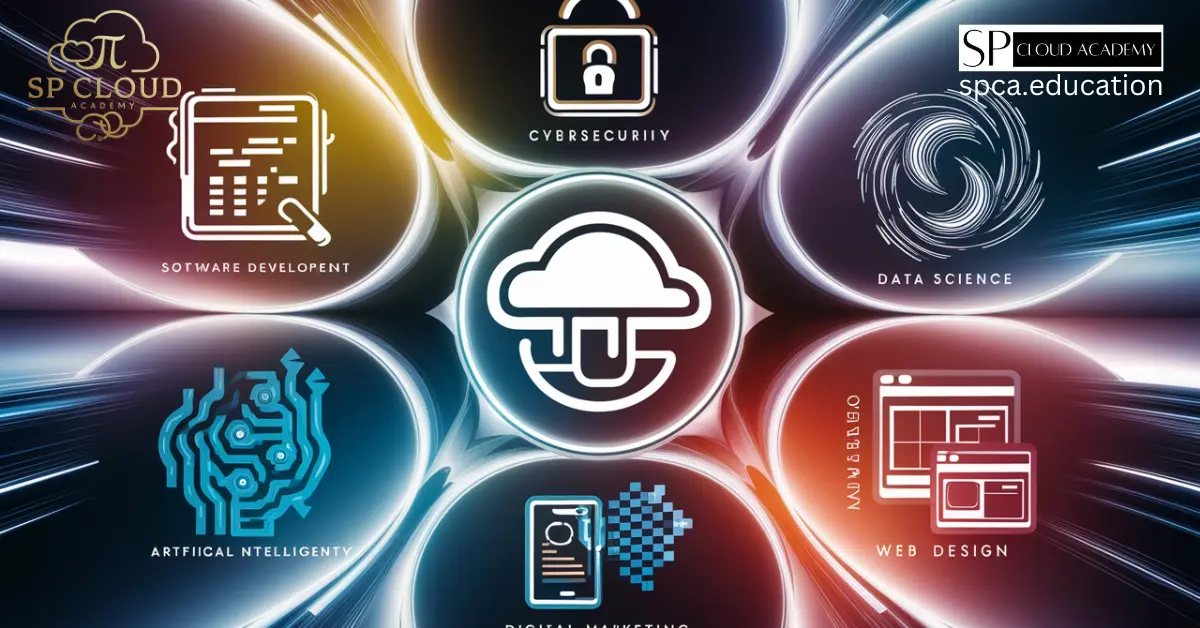Artificial Intelligence (AI) has become a game-changer in various industries, and digital marketing is no exception. As technology continues to evolve, AI is revolutionizing the way businesses connect with their target audience and drive results. In this article, we will explore the significant impact of AI in digital marketing and how it is reshaping the industry.
AI refers to the simulation of human intelligence in machines that are programmed to think and learn like humans. By leveraging advanced algorithms, machine learning, and data analytics, AI enables marketers to make data-driven decisions, automate processes, and personalize customer experiences. This powerful combination has transformed the landscape of digital marketing, allowing businesses to optimize their strategies for better outcomes.
Benefits of using AI in digital marketing
The integration of AI in digital marketing offers numerous benefits that can give businesses a competitive edge. One of the key advantages is enhanced efficiency and productivity. AI-powered tools can automate repetitive tasks, such as data analysis, content creation, and campaign optimization. This automation frees up valuable time for marketers to focus on strategic planning and creative initiatives.
Another significant benefit is improved targeting and personalization. AI-based recommendation engines utilize machine learning algorithms to analyze customer behavior, preferences, and purchase history. This data is then used to deliver personalized content, product recommendations, and tailored marketing messages. By personalizing the customer journey, businesses can increase engagement, conversions, and customer satisfaction.
Moreover, AI enables predictive analytics, which helps marketers anticipate future trends and customer behavior. By analyzing vast amounts of data, AI algorithms can identify patterns and make accurate predictions about consumer preferences, market trends, and campaign performance. This foresight allows businesses to adjust their strategies proactively, optimize their marketing efforts, and stay ahead of the competition.
AI-based recommendation engines in digital marketing
Personalization is a key aspect of digital marketing success, and AI-based recommendation engines play a crucial role in achieving this. These engines analyze user data, such as browsing history, purchase behavior, and demographic information, to provide personalized recommendations and suggestions.
By understanding customer preferences, AI recommendation engines can display relevant products or content, increasing the likelihood of conversion and customer satisfaction. For example, e-commerce platforms use AI to recommend products based on previous purchases or items viewed, creating a personalized shopping experience for each user.
Furthermore, AI recommendation engines can also be integrated into email marketing campaigns. By analyzing customer data, AI algorithms can segment the audience and send targeted emails with personalized product recommendations. This level of personalization significantly improves email open rates, click-through rates, and ultimately, conversions.
Personalization in digital marketing using AI
Personalization has become a crucial aspect of digital marketing, and AI plays a pivotal role in achieving tailored experiences for customers. By leveraging AI technologies, businesses can collect and analyze vast amounts of data to understand individual preferences, behaviors, and interests.
This data-driven approach allows marketers to create highly targeted and personalized campaigns. For example, AI can analyze customer interactions with a website or mobile app to deliver customized offers, recommendations, and content. By showing customers what they are most likely to be interested in, businesses can increase engagement, conversions, and customer loyalty.
AI-powered personalization also extends to advertising. With AI, marketers can deliver targeted ads to specific audience segments based on their demographics, interests, and online behavior. This level of personalization improves ad relevance, leading to higher click-through rates and better return on investment.
AI and predictive analytics in digital marketing
Predictive analytics is a powerful application of AI in digital marketing. By analyzing historical data, AI algorithms can predict future trends, customer behavior, and campaign performance. This foresight allows marketers to make informed decisions and optimize their strategies for better outcomes.
For instance, AI can analyze past campaign data to identify patterns and factors that contribute to success. By understanding which elements drive engagement and conversion, marketers can refine their campaigns and allocate resources more effectively. This data-driven approach reduces guesswork and increases the chances of achieving desired marketing goals.
Predictive analytics also helps businesses identify potential high-value customers. By analyzing historical data and customer attributes, AI algorithms can identify characteristics and behaviors that indicate a higher propensity to convert or make repeat purchases. This information enables marketers to focus their efforts on the most promising leads and optimize their customer acquisition strategies.
AI-powered chatbots in digital marketing
Chatbots have become increasingly popular in digital marketing, and AI is the driving force behind their effectiveness. AI-powered chatbots can simulate human conversation and provide instant, personalized assistance to website visitors or customers.
These chatbots use natural language processing and machine learning algorithms to understand user queries and provide relevant responses. Whether it’s answering frequently asked questions, recommending products, or assisting with the purchase process, chatbots offer real-time support and enhance the customer experience.
AI-powered chatbots also have the ability to learn and improve over time. By analyzing user interactions and feedback, these chatbots can continuously optimize their responses and provide more accurate and helpful information. This self-learning capability ensures that customers receive timely and relevant assistance, leading to increased satisfaction and improved conversion rates.
AI and voice search optimization in digital marketing
The rise of voice assistants and smart speakers has created new opportunities for businesses to optimize their digital marketing strategies. AI plays a crucial role in voice search optimization, allowing brands to connect with their audience through voice-activated devices.
AI-powered voice recognition technology enables accurate voice search results by understanding natural language queries. By optimizing content for voice search, businesses can ensure their website or app appears in relevant voice search results, increasing visibility and driving organic traffic.
Furthermore, AI helps in understanding user intent behind voice queries, allowing businesses to deliver more personalized and contextually relevant responses. This level of personalization enhances the user experience and increases the chances of conversion.
To optimize for voice search, businesses can focus on creating conversational content that aligns with common voice search queries. Additionally, optimizing meta tags, providing concise and relevant answers, and improving website speed and mobile-friendliness are essential steps in voice search optimization.
Challenges and limitations of AI in digital marketing
While AI brings numerous benefits to digital marketing, it also comes with challenges and limitations. One of the main challenges is data privacy and security. AI relies on vast amounts of data to make accurate predictions and personalize experiences. However, concerns regarding data privacy and security have become more prominent, requiring businesses to ensure ethical data practices and comply with regulations.
Another challenge is the potential bias in AI algorithms. AI algorithms learn from historical data, which may contain biases or reflect existing inequalities. This can result in biased recommendations, targeting, or decision-making. To address this issue, businesses must continuously monitor and evaluate AI algorithms to ensure fairness and avoid discriminatory practices.
Furthermore, AI implementation requires significant investments in infrastructure, talent, and training. Small businesses or those with limited resources may face challenges in adopting AI technologies due to cost constraints or lack of expertise. However, as AI continues to evolve, it is becoming more accessible and affordable for businesses of all sizes.
The future of AI-based digital marketing
The future of AI-based digital marketing holds immense potential. As technology advances, AI will continue to play a vital role in transforming the industry. Here are some key trends and possibilities for the future:
- Hyper-personalization: AI will enable even more personalized and tailored experiences for customers, allowing businesses to deliver highly targeted content, recommendations, and offers.
- Advanced analytics: AI-powered analytics will provide deeper insights into customer behavior, enabling businesses to make data-driven decisions and optimize their marketing strategies.
- Voice and visual search: AI will further enhance voice and visual search capabilities, allowing businesses to connect with customers through emerging technologies like augmented reality and virtual reality.
- Enhanced customer service: AI-powered chatbots and virtual assistants will become even more sophisticated, offering seamless and personalized customer service across multiple channels.
- Predictive marketing: AI will continue to improve its predictive capabilities, enabling marketers to anticipate customer needs, trends, and preferences, and stay ahead of the competition.
Conclusion
AI is transforming the landscape of digital marketing, empowering businesses to make data-driven decisions, automate processes, and deliver personalized experiences. From AI-based recommendation engines to predictive analytics and chatbots, AI is revolutionizing the industry by enhancing efficiency, targeting, and customer engagement. While challenges and limitations exist, the future of AI-based digital marketing holds immense potential for hyper-personalization, advanced analytics, and innovative technologies. As businesses embrace AI, they can stay ahead in a rapidly evolving digital landscape and drive long-term success.
CTA: Embrace the power of AI in your digital marketing strategy today and unlock the endless possibilities it offers. Contact us to learn more about how AI can revolutionize your business.
See also
https://spca.education/digital-marketing-career-in-2024/
-

From Clicks to Connections: Smart Ways to Combine Online and Offline Job Hunting
-

How to Turn Your Passion for Graphics into a Freelance Career
-

Technical Post vs. General Post in Job Sectors: A Detailed Explanation with Examples, Responsibilities, and FAQs
-

The Future of IT Support and Administration Careers: Trends You Can’t Ignore
-

The Power of Professional Communities: Why Joining One Can Transform Your Life
-

Top 7 Gig Work Opportunities in the ICT Sector You Can’t Ignore
